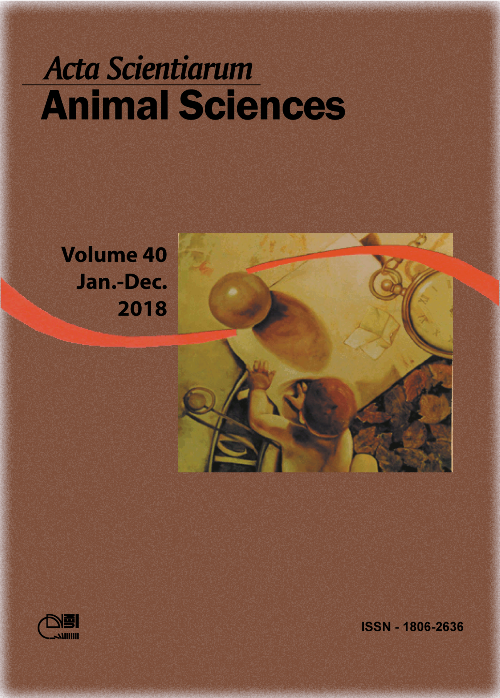<b>Brazil nut oil in diets for breeder cocks
Abstract
This study aimed to evaluate the inclusion of Brazil nut oil in diets for breeder cocks on performance, semen analyses, biochemical serum profile and testicular morphology. Forty-two Rhode Island Red breeder cocks with 40 weeks of age were used. The experimental design was completely randomized consisting of seven levels of Brazil nut oil (0; 0.30; 0.60; 0.90; 1.20; 1.50 and 1.80%) in the diets. Data collected were evaluated by polynomial regression. Differences (p < 0.05) were detected in feed conversion, semen volume, motility, vigor, pH, swirling and concentration, in which the inclusion of Brazil nut oil in the diets improved the reproductive performance. Differences (p < 0.05) were also detected in the biochemical serum profile (triglycerides, cholesterol and blood pH); the inclusion of Brazil nut oil caused a large increase in blood triglycerides and cholesterol levels, consequently, changing the blood pH. The Brazil nut oil can be used as an energetic additive in diets given to breeder cocks, promoting better reproductive performance, without changing semen and testicular morphology, but altering the biochemical serum profile of the birds.
Downloads
DECLARATION OF ORIGINALITY AND COPYRIGHTS
- I Declare that current article is original and has not been submitted for publication, in part or in whole, to any other national or international journal.
The copyrights belong exclusively to the authors. Published content is licensed under Creative Commons Attribution 4.0 (CC BY 4.0) guidelines, which allows sharing (copy and distribution of the material in any medium or format) and adaptation (remix, transform, and build upon the material) for any purpose, even commercially, under the terms of attribution.
Read this link for further information on how to use CC BY 4.0 properly.









































